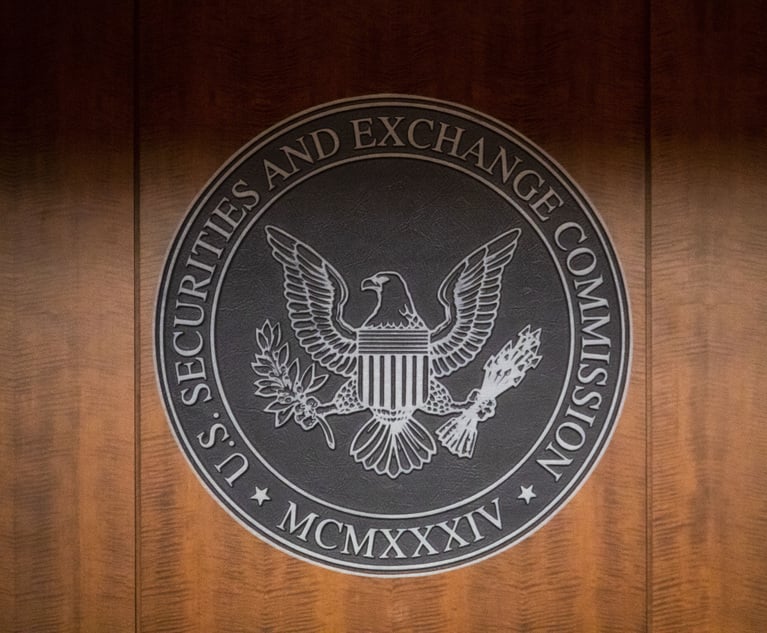U.S. House Republicans advanced legislation to undo Congress'sresponse to the 2008 financial crisis after Democrats forced quickaction on the measure that they decried as toxic.
|Financial Services Committee Chairman Jeb Hensarling's bill,which he said will spur economic growth and end bank bailouts, willmove to the House floor after a 30-26 vote in an acrimoniouscommittee markup on Tuesday. The Financial Choice Act is theTexas Republican's plan for replacing the six-year-old Dodd-FrankAct.
|“This bill is so bad that it simply cannot be fixed,”Representative Maxine Waters, the panel's ranking Democrat, said ina statement before the vote. “It's clear that this is a rushed,partisan messaging tool, though why anyone would want to pushlegislation to deregulate Wall Street at a time like this is beyondme.”
|Even with committee approval, the legislation isn't expected toget a vote on the House floor. Many Republicans aren't anxious totake a position that can be portrayed as giving support to thefinancial industry, especially in the weeks leading up to anelection. Scrapping Dodd-Frank may be even less popular after WellsFargo & Co. set off a renewed backlash against banks inWashington when it agreed last week to pay $185 million in finesfor allegedly opening deposit and credit-card accounts withoutcustomers' approval.
|Hensarling said his bill, which passed with no Democrats insupport, would toughen rules for Wall Street and bolster safeguardsagainst another financial crisis.
|“Democrats just voted against a bill that increases penaltiesagainst those who commit financial fraud,” he said in a statement.“They just voted against a bill that ends taxpayer-funded bailouts,and they just voted against legislation that provides relief fromWashington's crushing regulatory burden for small banks, creditunions and consumers.”
No Compromise
That lack of bipartisan support for the legislation reflectsHensarling's rigid pro-market ideology and shows it wasn't written,as many bills are, with compromise in mind, said Brandon Barford, apartner at Beacon Policy Advisors, a Washington research firm.
|“It's making a point rather than making a difference,” Barfordsaid.
|Indeed, in a sign that the legislation is more about themessage, Hensarling launched a mini-marketing campaign, completewith online videos and a catchy tagline: “Growth For All, BailoutsFor None.”
|The bill — which could serve as the starting blocks for apotential Trump administration's overhaul of financial regulations— takes a red pen to the core language of the Dodd-Frank.
|The Volcker Rule ban of certain investments by banks: gone. Thepower of regulators to take apart failing financial firms: gone.The Financial Stability Oversight Council's ability to label firmsthat might endanger the wider financial system: gone. And among themost hotly contested provisions is a repeal of a provision thatlimited debit-card swipe fees.
|Jammed with ideas familiar to those who have followedHensarling's campaign against the landmark legislation, the billwould also weaken the reach of the Consumer Financial ProtectionBureau and replace its lone director with a commission. It wouldgive Congress much more authority over the financial regulators'budgets, and the agencies would have more hoops to jump through tojustify their rules. Democrats have vocally defended the CFPB inrecent days after it led regulators fining Wells Fargo.
|Hensarling's bill calls for allowing the Securities and ExchangeCommission to triple monetary fines in cases where the penaltiesare tied to illegal profits and gives the agency authority toimpose sanctions equal to investor losses in cases of fraud. Itwould also increase fines for individuals that engage in insidertrading.
|Republican presidential candidate Donald Trump has oftencriticized Dodd-Frank and regulations in general, so a draft ofHensarling's bill could come in handy whether or not it makes muchprogress in the House this year.
|Lobbying groups for retailers have bashed the bill's repeal ofthe swipe fee measure, authored by Senator Richard Durbin. Theprovision capped the payments, known as interchange, that retailersmake to banks for processing debit cards. The National Associationof Convenience Stores noted this week that the change was needed tocontrol “the spiraling costs of transactions.”
|Banks said that the Durbin repeal is one part of the Hensarlinglegislation they support. Though it too won't become law anytimesoon, bank lobbyists said they see it as a positive developmentthat puts them back on offensive after getting beaten down bymerchants like Wal-Mart Stores Inc. and Target Corp. for most ofthe decade. There's some $50 billion in annual fees at stake in thelong-running swipe fee battle.
|“Small, medium and large banks and credit unions won today,”said Sam Geduldig, a Republican financial-services lobbyist withCGCN Group who has clients involved in the swipe-fee fight. “Pricecontrols have hurt the entire industry and this vote is a stepforward for the entire banking sector.”
|Bloomberg News
|Copyright 2018 Bloomberg. All rightsreserved. This material may not be published, broadcast, rewritten,or redistributed.
Complete your profile to continue reading and get FREE access to Treasury & Risk, part of your ALM digital membership.
Your access to unlimited Treasury & Risk content isn’t changing.
Once you are an ALM digital member, you’ll receive:
- Critical Treasury & Risk information including in-depth analysis of treasury and finance best practices, case studies with corporate innovators, informative newsletters, educational webcasts and videos, and resources from industry leaders.
- Exclusive discounts on ALM and Treasury & Risk events.
- Access to other award-winning ALM websites including PropertyCasualty360.com and Law.com.
*May exclude premium content
Already have an account? Sign In
© 2024 ALM Global, LLC, All Rights Reserved. Request academic re-use from www.copyright.com. All other uses, submit a request to [email protected]. For more information visit Asset & Logo Licensing.







